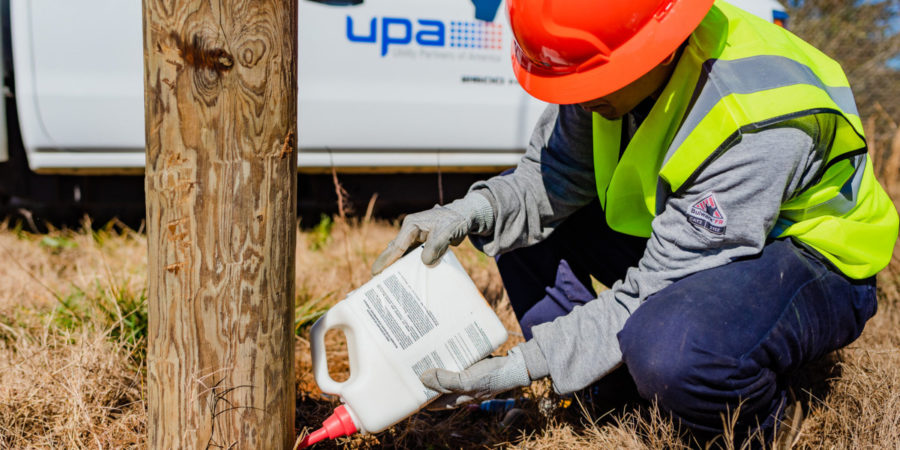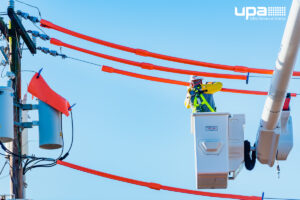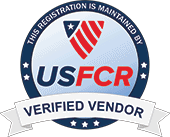In most jobs, the occupational hazards are completely within the employee’s control. Those tasked with lifting heavy objects can wear a back brace or practice proper form. People who spend hours at a keyboard can take periodic breaks and stretch for mobility and joint health. But for utility field technicians, the great outdoors is the great unknown. Given their roles and responsibilities, it’s possible for field technicians to come in contact with poisonous plants and dangerous animals on any given day. Anyone working outside knows that outdoor protection is key to avoiding hazards such as bug bites and stings. In an effort to assist your field technicians with that kind of awareness, we’ve put together a list of five safety tips to keep in mind when working outdoors.
1) Keep your skin covered
This one can actually serve a couple of purposes, especially during hot summer days when the sun is beating down. One of the most effective safety tips field technicians should practice is to keep their skin covered. Wearing a hat and gloves is a good start, but there are plenty of other best practices too. We suggest wearing a long-sleeved shirt tucked into pants. In doing so, you keep your skin safe from poison ivy or ticks that hide in tall grass.
2) Keep medication handy in case of a reaction
Field technicians aware of an existing allergy should keep medication in close proximity in the event it’s needed. Auto-injectable devices that deliver a drug called epinephrine can save someone’s life during a severe allergic reaction. In addition, field technicians should always tell their colleagues where the medication is located in advance in case an allergic reaction incapacitates them.
Related: Electrical Shock Prevention for Utility Technicians
3) Wild animal awareness
While many of the animals a field technician encounters may seem cute and cuddly, they’re still wild. They should be treated as such. Field technicians must avoid interacting with wild animals in ways that can increase the chances of them becoming scratched or bitten. This includes feeding, touching, and irritating wild animals. In general, wild animals are afraid of humans and will avoid confrontation. Keeping work sites clear of debris and trash is a good step to keep animals out of the area.
Related: Dogs on Customer Property: Keeping Technicians Safe
4) Brush up on the dangerous plants and animals found where you are working
Knowledge is the best prevention tool. Nothing will keep a field technician safer than being able to identify poisonous plants and critters that can sting or bite. The Centers for Disease Control and Prevention (CDC) is a valuable resource as it provides tips on recognizing the most popular forms of poisonous plants online. You might even uncover some surprising details—like the fact that of the 14 snake species native to Connecticut, only two are venomous. Meanwhile, in Arizona, there are an astounding 13 recognized species of rattlesnakes alone.
Related: OSHA and Beyond: Keep Employees Safe in the Field
5) If you are bitten, scratched, or are exposed to potentially poisonous plants, seek medical attention
It’s always in the technician’s best interest to err on the side of caution when there is an incident. Allergies can change as we age, so it’s possible to receive a reaction from a plant you wouldn’t expect. More commonly, ticks can carry Lyme disease which is an infection that begins with a rash and a fever. Recognizing early symptoms of a tick or animal bite can prevent infection and worsening conditions. No matter the animal or plant, if you believe your health is at risk, seek medical attention immediately.
After working with utilities and energy cooperatives for 25 years, the team at Utility Partners of America (UPA) has seen a good number of field technicians encounter poisonous plants or dangerous insects and animals while working outdoors. If you thought these five tips were helpful, we’d love to talk to you about what else we can do for your utility. To learn more about UPA, contact us today or call (864) 269-2302.





